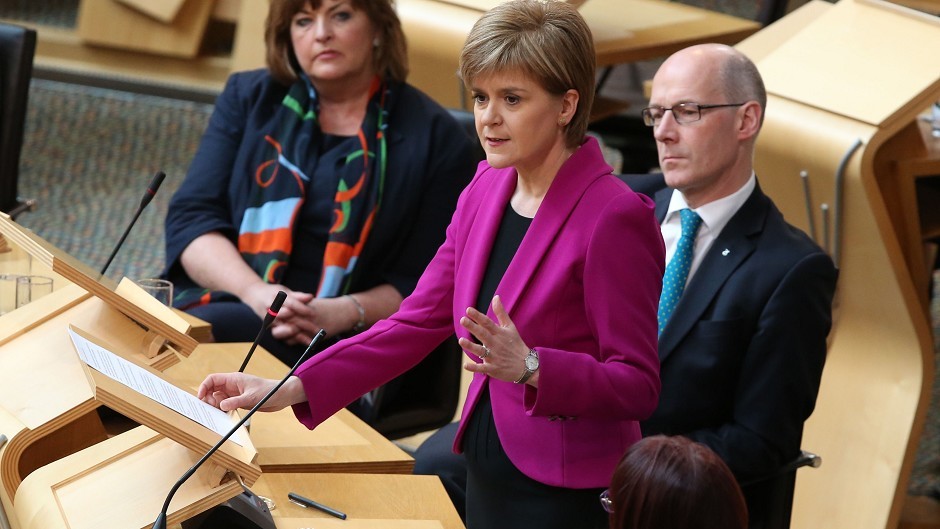First Minister Nicola Sturgeon has warned the UK Government that its response to calls for more Holyrood powers would be “crucial” to the future of the union.
The SNP leader said that work undertaken by the Smith Commission represented a “strong starting point” but Conservative ministers must re-examine the proposals with the view of “extending devolution even further”.
Ms Sturgeon urged Scottish Labour to get on board with the campaign because leaving power to build economic prosperity and greater social justice in the hands of Westminster would be “simply inexplicable” to voters.
She applauded the Scottish Trades Union Congress which is backing SNP calls for powers over the minimum wage, trade union and employment law, health and safety law, equalities legislation and greater responsibility on welfare to be devolved.
The first minister told MSPs that she hoped to meet the prime minister later this week and public spending and protection of the Scottish budget would also be on the agenda.
Ms Sturgeon said: “If the prime minister and his government mean what they say about respecting the outcome of the election in Scotland, they must now agree with us a process that looks again at the Smith Commission proposals, with a view to extending devolution even further.”
The first minister said there would only be another independence referendum if people voted in a future Scottish Parliament election to have one.
Ms Sturgeon said she could not impose a contest on voters and the prime minister was “unable to rule out a referendum against the will of the people.”
Reflecting on the mandate that the SNP secured by winning 56 seats, she added: “How David Cameron, his government and the Westminster system choose to respond to the message Scotland has sent will be crucial to how we move forward.”
Ms Sturgeon has previously cited a vote to leave the EU against Scotland’s will as a “material change of circumstances” which could prompt another referendum.
She confirmed yesterday that she will lay amendments to any EU Referendum Bill to introduce a “double majority” rule requiring a Yes majority in each of the constituent parts of the UK.
